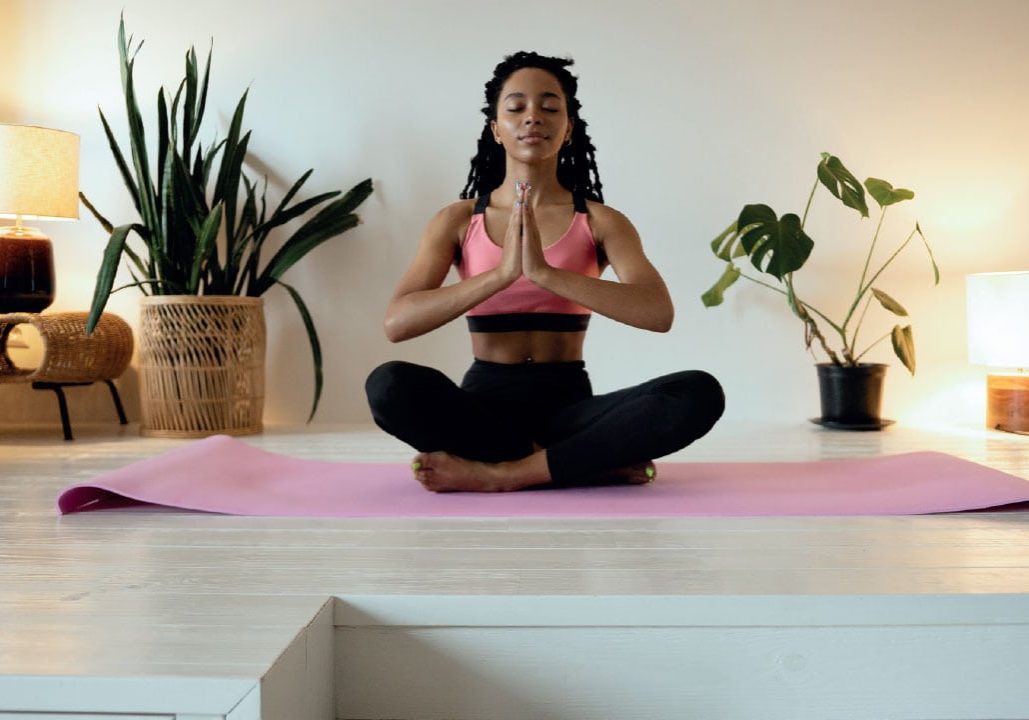Embodied Living: Mindfulness & Yoga for Life’s Everyday Challenges

Is your desire for certainty holding you back?
The experience of living is a fine balance…a balance between living with wisdom, or the awareness of what is, what has been and what might be, and of embracing our naivety with faith in the unknown. By Lauren Bloxham
Reading time: 3 minutes
Sometimes the greatest freedom is in the not knowing. Different to ignorance, the unknown is a place of awareness, a place of complexity and often a place that many of us struggle to occupy without seeking out certainty.
When we are certain we feel ‘right’, and when we seek out certainty, we seek out those who agree with us. We feel rested in the knowledge that this one viewpoint is the most valid viewpoint and that alternatives are somehow less than. Seeking certainty allows us to form moral hierarchy, and in our moral hierarchy we create echo chambers of similarity. It forms the basis of ‘othering’ and at best keeps us from developing ever deepening compassion and appreciation for the differences between us, and at worst the dehumanisation and abuse of that which is different.
Our individual yoga journeys are self-reflective in nature; they start with bringing the intention of awareness to our bodies. Awareness which invites us to understand how movement makes us feel and leads us towards applying movement and rest as medicine to balance both physical and energetic bodily feedback. With awareness, we begin to understand that, over time, our progress may be in strength of body or strength of mind, in adaptability, or in our compassionate approach to ourselves. Ever changing and rarely linear.
When it comes to the deeper layers of awareness, beyond the physical body and breath we meet our minds – the Manomaya kosha — made up of thoughts and thinking, fantasies and imagination, dreams, memories and ideas, words and images which all give life and understanding to the experience of the mind. Bringing the intention of awareness to this space, self-reflection allows us to notice the nature of the thoughts we are having and how they might affect how we’re feeling and the choices we end up making.
The movements of our minds, much like the movements of our bodies, can become habitual. We get comfortable with the way they work and can easily take for granted their fixed nature, but unlike the body, the mind is subtle in its substance.
The mind enjoys certainty though; there is a familiarity and security in its structure. It might be experienced as ‘right or wrong’, ‘good or bad’, but the nature of the mind likes to know the way and have the answers. It’s a great ally in navigating the way to work each day or recognising objective truth such as birth dates or useful facts, such as what temperature water boils or freezes at, but we hold ourselves back when we try and apply this kind of certainty to matters of feeling or opinion. ‘Fixing’ our mindsets on any particular topic can be a way to remain accepted by our peers, to remain agreeable and therefore safe, but it also means we avoid change, challenge and personal growth.
Porttitor rhoncus dolor purus non.
It's the interplay between the mind and a deeper layer of awareness, the Vijnanamaya kosha, or wisdom body, that invites us to occupy a more fluid state of mind. This is the territory of the most alive and vibrant state, the unknown. Where all things arise with equality and we hold the knowledge of the past, the reality of the present and the possibility of the future all at once. It’s a place of benign curiosity free from judgement, which invites us to experience what arises in its fullness instead of a redacted or diminished version of itself. It takes heart and guts to hold this space because it challenges the status quo and risks the rupture of connections which depend upon things being fixed. But in this space, we have the opportunity to change our minds.
This broader awareness is the container within which we think and feel, but it is neither of those things. It is a place which invites us to know the sky is blue, but it is not that knowledge. Within awareness, we eat, sleep, think, feel, move and know with equality. Within awareness, we can experience all things as either loving or as a call to love, as Marianne Williamson would say. When thoughts arise that feel painful, they call for deep compassion; when things feel joyful they call for celebration; and when darkness arises within us, we can say ‘yes this too is here’.
But nothing stands alone, nothing is in and of itself good or bad, but our desire to make it so is what separates us and holds us back from experiencing deeper, more loving connections in the world.
“Out beyond ideas of wrongdoing and right doing, There is a field. I’ll meet you there.”
Rumi
Embodying Vijnanamaya Kosha requires us to listen deeply with our hearts. So, the next time the mind becomes fixed on a particular story line, the next time your certainty leads you towards judgement, ask yourself the question: What if there is another possibility? What if something else is also true? It might just open up fresh perspective, new ideas and best of all personal growth.
Practice yoga with Lauren Bloxham online or on-retreat at: sabda.uk
Connect on Instagram @laurenbloxham.yoga or listen to ‘The Honey Doctrine – Ancient Yoga, Modern Living’ wherever you find your podcasts.


